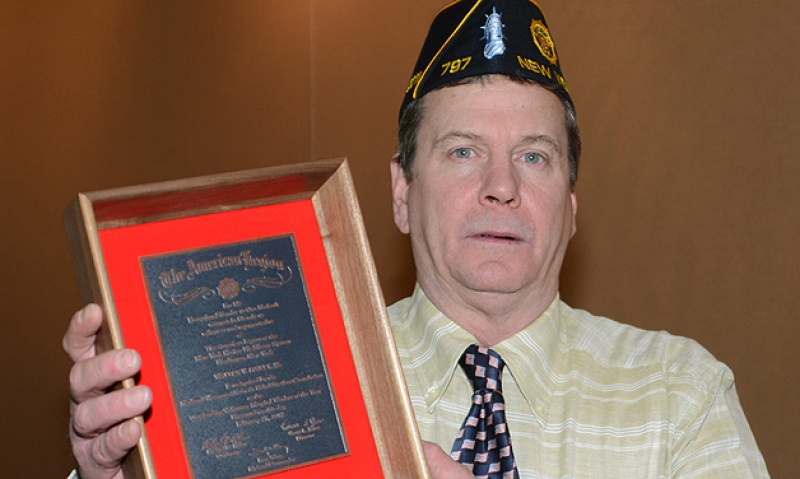
19-year-old Nick Madaras was killed by a roadside bomb while on patrol. But his plan to share soccer with Iraqi children didn’t die with him.
Nick Madaras loved soccer. Besides playing for Wilton High School in Connecticut, he served as a referee and volunteered as assistant coach for the middle-school team. So it was no surprise to those who knew Madaras that, while deployed, the Army soldier shared his passion for the sport with Iraqi children. He’d watch them kick rocks down the streets of Baqubah, because they had no soccer balls. While home on leave in July 2006, Madaras talked with his father, Bill, about sending soccer balls and equipment to Iraq so he could share them with local boys and girls.
Two months later, 19-year-old Madaras was killed by a roadside bomb while on patrol. But his plan to share soccer with Iraqi children didn’t die with him.
“I didn’t know the Madaras (family) at all, but when I heard about Nick’s death – well, as a veteran, it’s pretty touching,” said Ken Dartley, a member of American Legion Post 86 in Wilton. “I went to his graveside funeral service. Afterward, in reading news accounts, I learned that Nick had been a soccer player and that he’d asked his father to send some soccer balls and equipment over to Iraq. I thought, ‘Why not try to help?’”
Dartley contacted Bill Madaras and got permission from Post 86 to put up a soccer net in front of the post – right in the center of Wilton – as a drop-off point for soccer balls to send to Iraq. That was two years ago, and since then, the “Kick for Nick” program has collected and shipped more than 11,000 soccer balls to U.S. troops in Iraq and Afghanistan to distribute to children. Two thousand more are waiting to be shipped.
On Jan. 20-21, ESPN aired a piece on “Kick for Nick” that helped spread the word. The program has received donations from all but four U.S. states. Schools and businesses across the country are participating, too. Anyone who brought a soccer ball to a recent University of Connecticut soccer game got free admission; 1,000 soccer balls were collected. Dartley’s alma mater, the University of Texas, sent him 60 balls.
“It’s taken on a life of its own. It’s still going,” Dartley said. “I think people watched the (segment that aired on ESPN) and were moved by it. They see it’s something they can do to help.” Every soccer ball has “Pfc. Nick Madaras” written on it. “I proposed having his name on every ball,” Dartley said. “And in every crate of soccer balls we send over is Nick’s bio, which is read by a translator when the balls are handed out to the children.”
“Kick for Nick” has made a difference. In the ESPN piece, Salah Farag of Karesh, Iraq, said through a translator, “We would like to say to (Nick’s) family that it is true that he was killed and they lost him. But as far as we are concerned, he is present with the Iraqi children, and whenever they play soccer, they will remember him.”
Gen. David Petraeus, then-commander of Multinational Force-Iraq, wrote a letter to the Madaras family applauding their work. “Your generous donations are enabling Iraqi children to play soccer, and they are tangible reminders to the Iraqi people and our troopers of the support we have from Americans like you,” he said.
Tears fill Bill Madaras’ eyes when he’s asked what his son would think of “Kick for Nick.”
“He never would have believed how something he wanted to do personally would turn out to be a huge effort,” Bill said. “It’s made a positive impact on the situation over there, which is what (Nick) wanted to do. Obviously a lot of people wanted to help out in some way. This wasn’t isolated to Nick, but he opened the box.”
- Magazine

